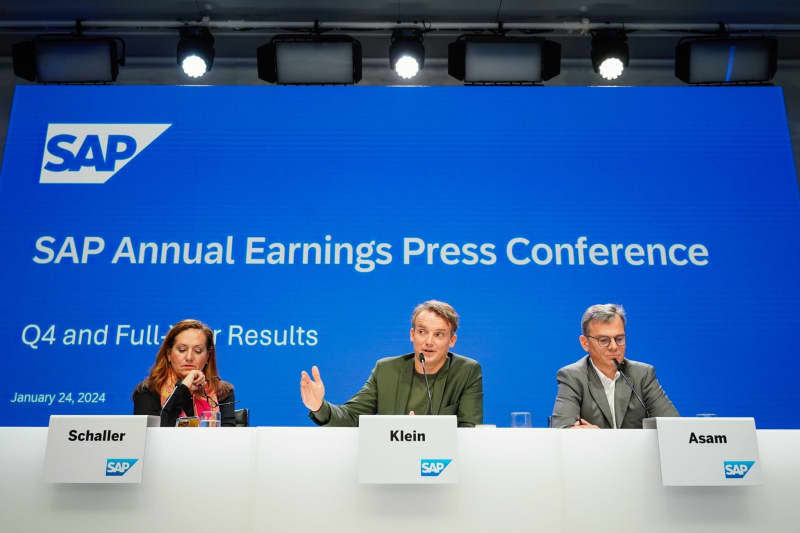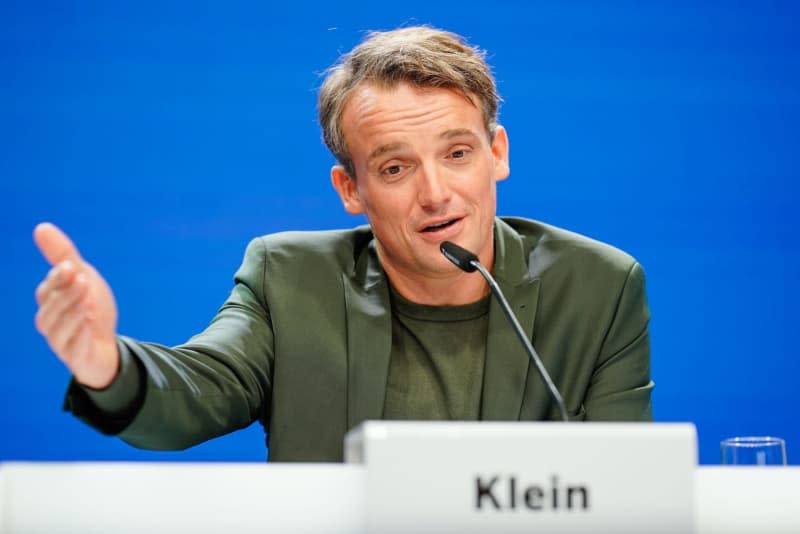German software giant SAP plans restructuring to boost AI development

German software giant SAP is launching a major reorganization of its artificial intelligence (AI) business, with around 8,000 employees affected by the plan, the company announced late on Tuesday.
The company, based in the town of Walldorf in south-western Germany, cut 3,000 jobs around a year ago in order to streamline its organization and focus more on its core business of software for corporate management.
"With the planned transformation programme, we are increasingly shifting investments to strategic growth areas, primarily AI," said SAP chief executive Christian Klein. "This will allow us to continue to develop pioneering innovations in the future and improve the efficiency of our business processes at the same time."
Most employees affected by the latest restructuring are expected to be internally retrained or offered voluntary departure packages. The company said it could not predict how many of the 8,000 workers would still be at SAP in the future.
Making such decisions is never easy, said Klein, but defended the decision as the best for the future of SAP and necessary to keep up in the tech industry.
Because of investments and growth plans in other areas, SAP said it expected total employment at the company to remain roughly steady.
Labour representatives from the works council at SAP stressed that departures should be purely voluntary and that the company should avoid involuntary redundancies.
The works council called on SAP to extend an agreement ruling out mandatory redundancies beyond 2024 in order to provide employees security.
The job cuts around a year ago likewise did not lead to an overall reduction in total staffing at SAP, although many of the individual workers lost jobs. At the end of December, SAP had 107,602 full-time employees, compared to 106,312 a year earlier.
The hype surrounding AI in the software industry was sparked last year by the release of the chatbot ChatGPT.
Since then, all software companies have been keen to get a slice of the future AI market and are investing a lot of money in the technology, which often requires immense computing power to develop.
Last year, SAP presented its own products such as the AI assistant Joule, which is designed to make it easier for users to perform typical tasks in companies.
Now Klein said the company will invest another €2 billion ($2.2 billion) in the restructuring programme.
Klein and SAP chief financial officer Dominik Asam have set a goal of increasing the pace of cloud sales and earnings this year.
Adjusted for special effects, earnings before interest and taxes are expected to grow by 17% to 21%, excluding exchange rate effects.
In the cloud, the subscriptions brought in should provide more impetus. Klein has set the sales teams a currency-adjusted sales increase of 24% to 27% as a benchmark.
Cloud products for use via the network have been the growth driver at SAP for some time. They are considered to be more profitable in the long term because customers pay continuously for access to the service, as opposed to paying a large one-off fee and an ongoing maintenance contract.
Initially, however, the cloud contracts mean losses because the high initial sales prices of the software license are eliminated.
AI and other innovations are to be reserved for the cloud versions of SAP's software in future, while the maintenance of certain products of permanently installed software will be phased out over time. In this way, Klein hopes to shift more SAP customers over to cloud-based products.
Overall, SAP increased its turnover in 2023 by 6% to €31.2 billion, the company announced. In day-to-day business, the adjusted operating result climbed by 9% to €8.7 billion.
In the final quarter, the lucrative licence business in particular helped, which fell significantly less than previously estimated by experts.
Net profit rose to €5.9 billion, which was more than three times the previous year's profit. The $12.5 billion proceeds from the sale of SAP's former US market research subsidiary Qualtrics helped drive earnings for 2023.


